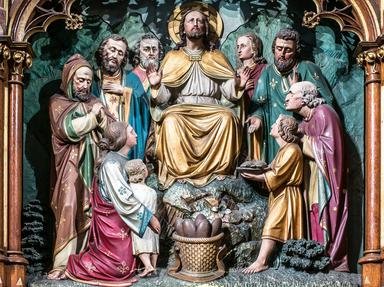
Women of Which Bible Book? Trivia Quiz
Old Testament Matching Quiz
The Biblical narrative wouldn't move forward without women fulfilling roles as rulers, mothers, enemies and lovers. Can you match these women with the Old Testament books in which they first appear? Quotes are from the New International Version.
A matching quiz
by pusdoc.
Estimated time: 3 mins.